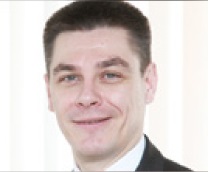「"We want to help to transform Tokyo into a smart city with world-class long range radio communication technology."」
With the ever-tightening regulations regarding automobile emissions, it has become increasingly important to make cars lighter and more energy efficient. Though traditionally fuel tanks were made of steel, the use of plastic in making fuel tank systems has major benefits that go beyond weight, including things like fuel economy, safety, and sustainability. The company's high tech recyclable plastics, made entirely in Japan, are fire and corrosion resistant, and also insulate against noise pollution.
"Japan is one of the most innovative countries - in terms of car manufacturing. So for us it was mandatory to set up our business here. In 2002 we bought the fuel system business from one of Japan's automobile manufacturers, and since then we are in Japan," says Stephane Noel, CEO of Plastic Omnium K.K. The company, which is based in France, has 111 factories and 23 technical centers worldwide. Their Japan factory is based in Kitakyushu, close to their client's manufacturing plant, which provides great advantage for logistics reasons such as transporting fuel tanks.
Automobile fuel tanks must be carefully designed to meet the requirements for each manufacturer's particular vehicles. For this reason, it is considered ideal for vehicle and component manufacturers to conduct R&D in tandem and be located together at the vehicle manufacturer's headquarters. Tokyo contains a dense concentration of potential R&D partners for the company - major automobile manufacturers and small to medium sized component manufacturers who possess world-class technology. Moreover, the hiring of highly skilled engineers for the R&D can be readily facilitated. "This is precisely why we had to establish ourselves in Tokyo." If anything, it could be said that establishing the company's R&D headquarters in Tokyo was a natural decision.
Furthermore, the company, seeking to drive R&D of Selective Catalytic Reduction systems (SCR)* - which are more efficient than traditional exhaust emission control systems - with the support of the Tokyo Metropolitan Government (TMG), decided to establish its new base in Toranomon, located within Tokyo's Special Zone for Asian Headquarters. Mr. Noel stresses the importance of research: "What we are selling is a highly technical product. Our company is spending 5% of its sales per year in R&D, out of which 1% is applied to fundamental research costs. So it's really showing that we are focusing on innovation." The company is considering using subsidies from TMG to hire talent for its new R&D business. The company also applied for subsidies from the Ministry of Economy, Trade, and Industry (METI) following counsel from a consulting firm that the TMG has commissioned to implement the Invest Tokyo program.
Mr. Noel and Mr. Manuel Hadj-Rahmoun, Customer Center Director, talk about Tokyo's pleasant living and business conditions. They mention the high-speed internet, citing the secure connections. They also talk about the excellent train networks, which provide convenient access to anywhere in the National Capital Region, also the frequent flights to Kyushu, as well as to other parts of Asia. Mr. Noel cites the good air quality and clean streets as an extra bonuses of visiting and living in Japan, while Mr. Hadj-Rahmoun brings up the excellent food as an enticing factor for working in Tokyo.
The company has big plans for the future: establishing new partnerships with Japan's automobile manufacturers and setting up the R&D center for conducting SCR research, to start. All these challenges will also require more talent. Currently, their R&D technical center in Tokyo has around 70 employees, but they are looking to further increase the number of personnel in the next five years. The company has put down roots in Japan and has plans to continue investing in the country including Tokyo.
*Selective Catalytic Reduction is a process that removes harmful nitrogen oxides from diesel engine emissions
(Selena Hoy)

